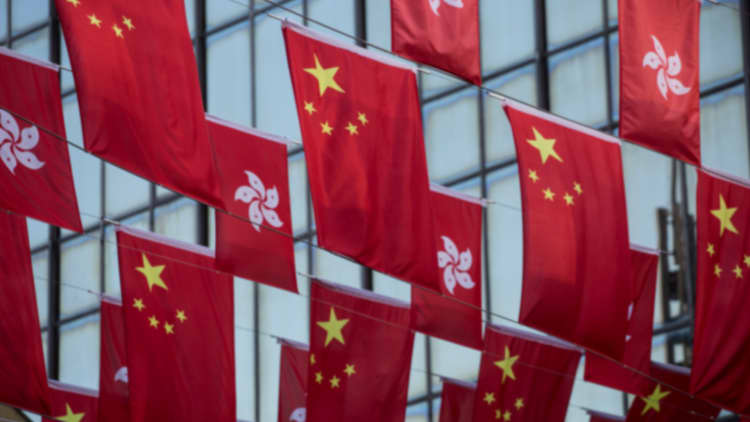The Chinese government is developing a plan to replace Hong Kong chief executive Carrie Lam with a possible successor who could be installed by March, reports the Financial Times, quoting sources.
The newspaper quoted "people briefed on the deliberations," who said if Xi Jinping, China's president, moves forward on replacing Lam, her successor would remain in place until the end of her term in 2022, and not necessarily stay on for a full five-year term afterwards.
The sources told the newspaper the leading candidates to replace Lam are Norman Chan, who formerly headed the Hong Kong Monetary Authority, and Henry Tang, who has been financial secretary of the territory and chief secretary for administration. Tang is the son of a textile magnate.
Asked by CNBC if there are plans for a leadership change, a representative of the Hong Kong's Chief Executive's Office said it would not comment on speculation. A representative for Tang told CNBC in a statement, "Mr. Tang does not comment on speculation. He supports Carrie Lam as CE."
Reuters reported that China's foreign ministry called the Financial Times report a political rumor with ulterior motives.
Protests keep rolling on
Lam's policies and fears of Beijing's creeping influence over Hong Kong have sparked months of violent protests against her government, even after a controversial extradition plan was withdrawn. That plan would have allowed the Hong Kong government to consider requests from any country for extradition of criminal suspects — including to mainland China.
Protesters have said they will not end the protests, now in a fifth month, until the chief executive and legislators are chosen in democratic elections.
According to the Financial Times' sources, Chinese officials do not want to be seen giving in because of the violence, and they want the situation to stabilize before they change leadership.
"For the Chinese, the only way they win here is they don't lose. Getting involved and sending their troops in, they would lose," said Marc Chandler, chief market strategist at Bannockburn Global Forex. "They would risk losing the special trading status with the U.S. They're trying to figure out how to get closure to this. The demonstrations are getting more violent."
March is when China's parliament, the National People's Congress, holds its annual session.
Lam has reportedly offered to resign multiple times, but her request was rejected by Beijing.
"The protesters have asked for her to resign. The Chinese are not going to allow a reformer to take her post. ... Will this solve it? The question is: Is this sufficient? And I say probably not," Chandler said.
—CNBC's Vivian Kam contributed to this report.
WATCH: What is Hong Kong's relationship with China?



